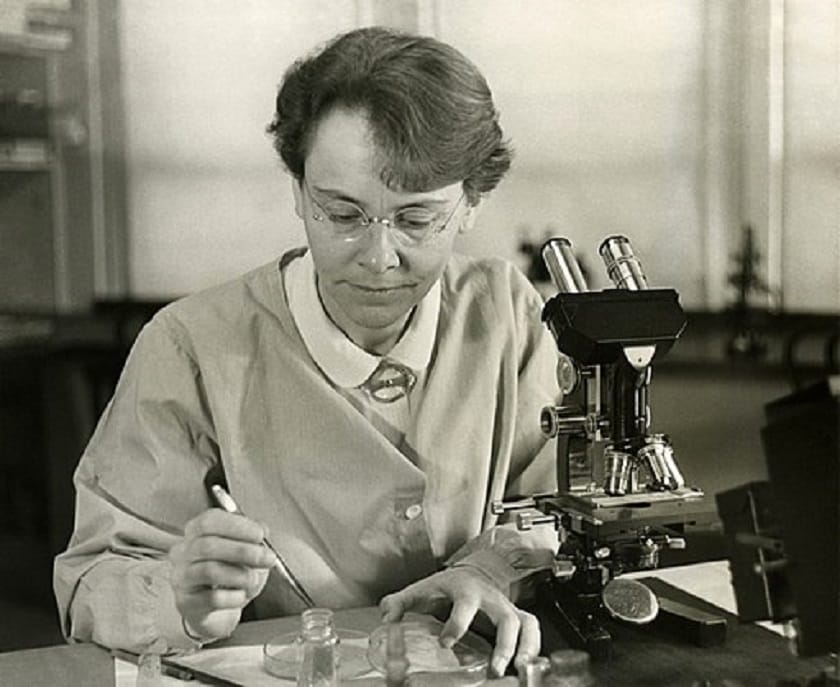
Meeting room renamed the Barbara McClintock Pavilion
So who was Barbara McClintock, and why have we named a room after her?
We recently renamed one of the main meeting rooms at the Wellcome Genome Campus Conference Centre – the James Watson Pavilion – after Barbara McClintock.
Barbara McClintock was awarded a Nobel Prize in 1983, for her work on the discovery of transposons – small segments of genetic code that are able to move around the genome, often leaving a trail of mutations behind them.

Today, scientists have found transposons in all sorts of organisms from yeasts to humans, and their jumping around the genome is likely to have influenced evolution across different populations of organisms. Barbara McClintock officially retired in 1967 after a 40 year career, but continued to live on the Cold Spring Harbor campus, regularly attending its scientific meetings until shortly before her death in 1992. She was a true leader in the field of genetic research, not just because she was one of the first wave of female research scientists in American universities, but because she was unafraid to explore previously uncharted biological territory.
